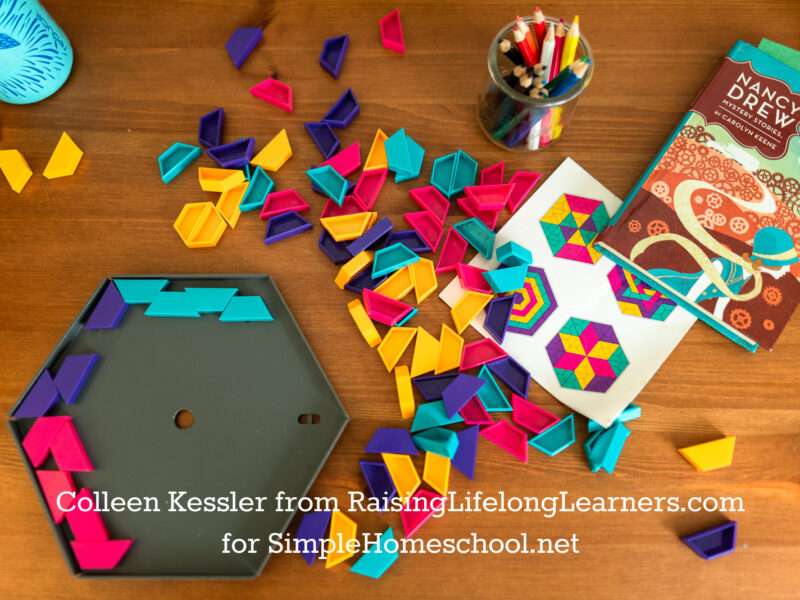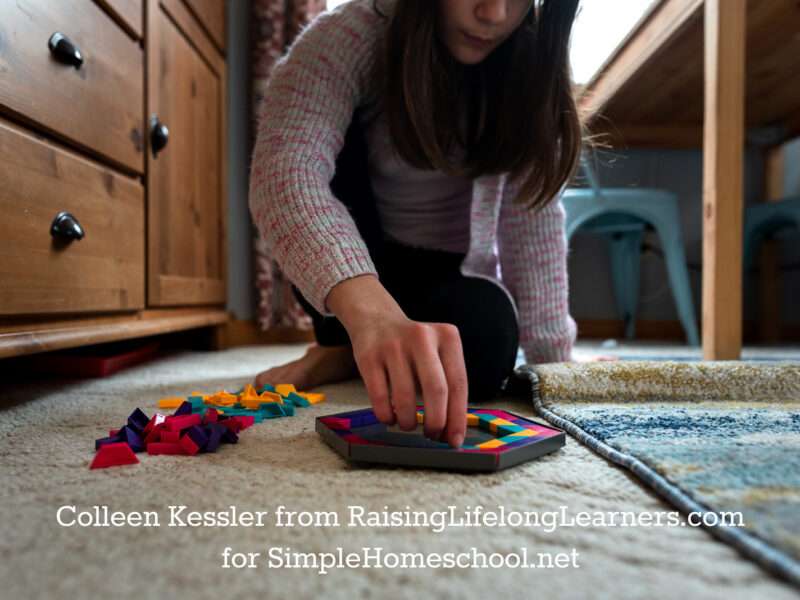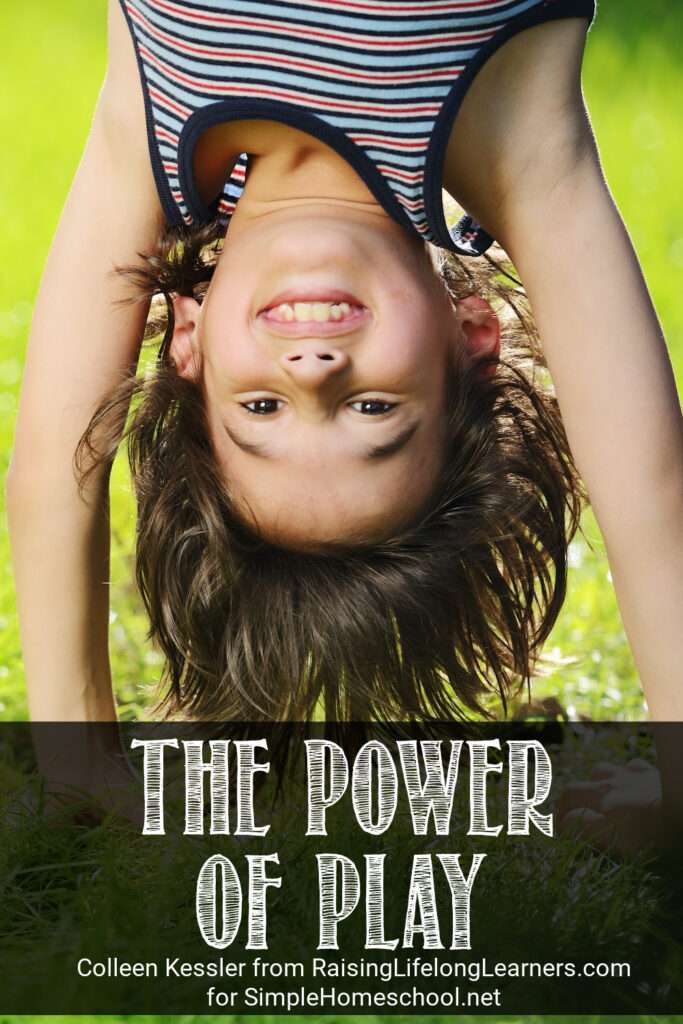The Power of Play from Toddlers to Teens
The Power of Play Throughout the Homeschool Years ~
Written by Colleen Kessler from Raising Lifelong Learners
When I first started homeschooling – almost SIXTEEN years ago, I was so worried about tackling the roles of both mom and teacher, and I overcompensated by leaning heavily on my classroom training.
I forgot that one of the main reasons we brought my son home was that sitting all day long was torture on the poor kiddo.
While textbooks and structured lessons can play an important role in learning, parents often underestimate what can be a powerful catalyst for learning – play.
From the world of toddlers to the craziness of the teen years, play serves as a powerful tool for all ages, fostering growth and enhancing learning for all. It’s important to remember the power of play and its role in learning, impact on cognitive, emotional, and social development:
The Foundation of Early Childhood Learning
Play is the cornerstone of development for the youngest members of your family and easiest to see how it fits into your little ones’ days. But play is not just a frivolous activity; it’s how kids make sense of the world around them.
Whether it’s stacking blocks to understand balance or engaging in make-believe scenarios to enhance communication skills, play becomes a vessel for absorbing information in a manner that mirrors the child’s natural curiosity.

Encouraging Curiosity and Critical Thinking
As children go along through their homeschooling journey, the role of play evolves to accommodate their growing intellectual needs. Play-based learning encourages curiosity and sparks critical thinking. Activities like puzzles, science experiments, and art offer opportunities for your kids to explore concepts independently, fostering a sense of ownership over their education.
By presenting challenges in a playful context, you can instill problem-solving skills, logical reasoning, and creativity in your kiddos’ learning toolkits.
Breaking the Monotony for Tweens
As children transition into the tween years, the draw of play remains. It tends to evolve into more sophisticated forms. Board games, strategic video games, and team-building activities are not only enjoyable, but also hone vital skills like critical thinking, planning, cooperation, and time management.
These activities offer a break from traditional homeschooling routines, adding a sense of fun that can rekindle enthusiasm for learning.
How Play Looks in the Teen Years
When kids grow into their teens, the concept of play remains important. This is a time when the lines between play and learning can blur. Hobbies, sports, and creative pursuits take on new importance as teens seek to find themselves and see their futures.
This is the perfect time for deep-dives as play in the teen years takes on greater meaning with potential impact on a child’s future confidence and vocation. Like Deepak Chopra says, “If a child is poor at math but good at tennis, most people would hire a math tutor. I would rather hire a tennis coach.”
Helping kids focus on their strengths through interest and play can lead to increased confidence, resilience, self-esteem, and propel them to greater success as adults.

Social Learning Through Play
Beyond individual development, play offers an opportunity for social learning. Playdates, group projects, and community involvement provide homeschoolers with tons of opportunities to interact with others, share ideas, negotiate conflicts, and collaborate on projects.
Homeschoolers have the chance to do this with mixed-age groups in person and online, instead of in grade-level divisions like the ones most school children experience.
The Power of Play in Stress Management
Life is challenging, and when you add in homeschooling, it can be demanding for both parents and children. Play is a fabulous stress relief. It has been shown to reduce stress hormones and stimulate the release of endorphins, promoting a positive emotional state.
Engaging in play is a healthy way to unwind, offering a mental break from academic pressures, along with the stress that comes with everyday life and all the decisions that need to be made on a daily basis.
Customizing Play for Effective Learning
As homeschooling parents, you have the advantage of tailoring play-based learning experiences to your child’s individual learning style. Observing your child’s interests and passions allows you to design activities that pique their curiosity.
By blending play with academics, you create a dynamic and engaging learning environment that can significantly enhance retention and understanding.
Fostering Lifelong Learners
The ultimate goal of homeschooling is to nurture lifelong learners – individuals who are curious, adaptable, and self-driven in their pursuit of knowledge. Play, with its intrinsic joy and limitless possibilities, fosters this naturally.
As your kiddos grow, their ability to learn from their environment, adapt to new challenges, and approach the world with curiosity will be deeply ingrained – all thanks to the power of play!
What’s Your Homeschool Mom Personality? Take Jamie’s quiz now and receive a free personality report to help you organize your homeschool based on what your type needs most!



Between subjects, my son would always go out & shoot baskets. He came in refreshed & ready to sit & apply himself. Niw, he picks up the guitar, too. Using different muscles, different parts of his brain. All helpful 😊